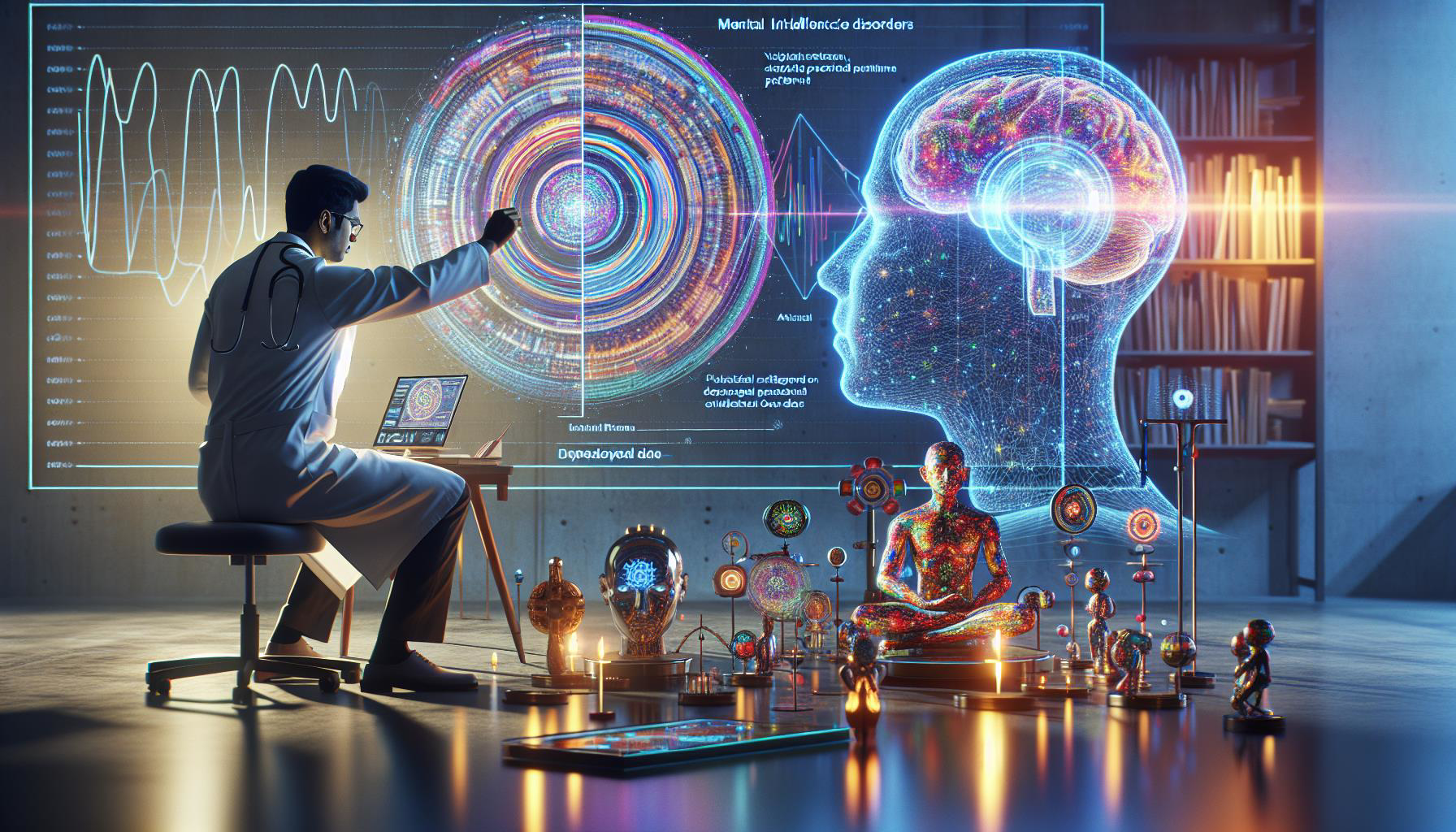The Massachusetts Institute of Technology (MIT) recently hosted a groundbreaking symposium focusing on the role of artificial intelligence (AI) in addressing the mental health crisis. Co-hosted by the McGovern Institute and MIT Open Learning, the event showcased emerging AI technologies that are advancing the understanding and treatment of mental health and neurological conditions.
Introduction to the Symposium
The symposium brought together leading experts in AI, neuroscience, and mental health to discuss the transformative potential of AI in mental health care. The event aimed to highlight how AI can be leveraged to improve diagnostic accuracy, personalize treatment plans, and enhance overall patient outcomes.
AI as a Diagnostic Tool
One of the key themes of the symposium was the use of AI as a diagnostic tool. Speakers emphasized that AI algorithms could analyze vast amounts of data, including medical records, genetic information, and even social media activity, to identify patterns indicative of mental health disorders. This could lead to earlier and more accurate diagnoses.
Personalized Treatment Options
Another significant focus was on personalized treatment options. AI can help tailor treatments to individual patients by analyzing their unique data. This could include recommending specific therapies, medications, or lifestyle changes based on the patient’s history and current condition, thereby improving treatment efficacy.
Understanding Mental Health Disorders
The symposium also highlighted how AI could deepen our understanding of mental health disorders. By analyzing large datasets, AI can uncover new insights into the causes and progression of these conditions, potentially leading to the development of new treatment methods and preventive measures.
Interdisciplinary Collaboration
Speakers at the event stressed the importance of interdisciplinary collaboration in leveraging AI for mental health research and care. Combining expertise from fields such as computer science, psychology, and neuroscience is crucial for developing effective AI-driven solutions.
Ethical Considerations
Ethical considerations were also a major topic of discussion. The use of AI in mental health care raises important questions about data privacy, consent, and the potential for bias in AI algorithms. The symposium underscored the need for robust ethical guidelines to ensure that AI technologies are used responsibly.
Case Studies and Success Stories
Several case studies and success stories were presented, demonstrating the real-world impact of AI in mental health care. These examples showcased how AI has already improved diagnostic accuracy and treatment outcomes for patients with various mental health conditions.
Future Directions
Looking ahead, the symposium identified several promising directions for future research and development. These include the integration of AI with wearable technology for continuous monitoring, the use of AI in telehealth services, and the development of AI-driven therapeutic interventions.
Challenges and Limitations
Despite the potential benefits, the symposium also acknowledged the challenges and limitations of using AI in mental health care. These include technical challenges, such as the need for high-quality data, as well as practical challenges, such as ensuring accessibility and affordability of AI-driven solutions.
Role of Policy and Regulation
The role of policy and regulation in the deployment of AI in mental health care was another important topic. Policymakers need to create frameworks that support innovation while protecting patient rights and ensuring the ethical use of AI technologies.
Educational Initiatives
Educational initiatives were highlighted as essential for preparing the next generation of researchers and practitioners. The symposium emphasized the need for interdisciplinary training programs that equip students with the skills needed to develop and implement AI-driven mental health solutions.
Community Engagement
Community engagement was also discussed as a critical component of successful AI implementation. Engaging with patients, caregivers, and mental health professionals can help ensure that AI solutions are user-friendly and meet the needs of those they are designed to help.
Conclusion
In conclusion, the MIT symposium highlighted the transformative potential of AI in mental health care. By providing novel diagnostic tools, personalized treatment options, and deeper insights into mental health disorders, AI has the potential to revolutionize the field. However, realizing this potential will require interdisciplinary collaboration, robust ethical guidelines, and supportive policy frameworks.
References
1. “Artificial Intelligence in Behavioral and Mental Health Care” by David D. Luxton
2. “Machine Learning for Healthcare” by Kevin P. Murphy
3. “AI and the Future of Health Care” by Eric Topol
4. “The Ethics of Artificial Intelligence in Health Care” by Michael Anderson and Susan Leigh Anderson
5. “Deep Medicine: How Artificial Intelligence Can Make Healthcare Human Again” by Eric Topol
